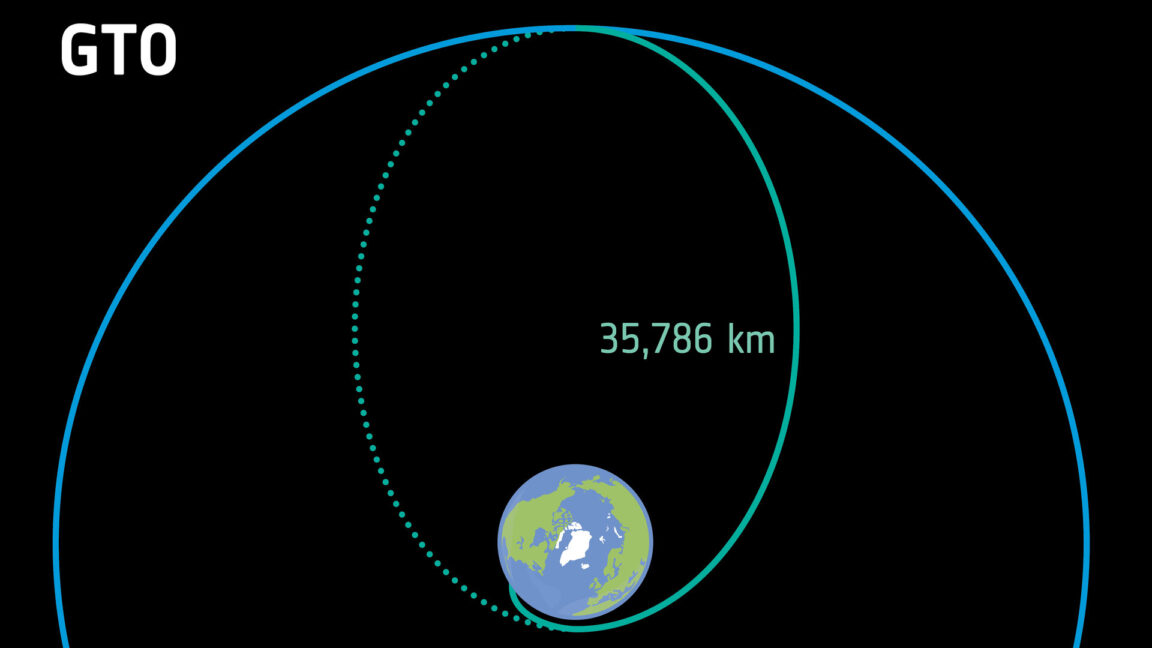SpaceX tries something new with Falcon 9. With nearly 500 launches under its belt, SpaceX’s Falcon 9 rocket isn’t often up to new tricks. But the company tried something new following a launch June 7 with a radio broadcasting satellite for SiriusXM. The Falcon 9’s upper stage placed the SXM-10 satellite into an elongated, high-altitude transfer orbit, as is typical for payloads destined to operate in geosynchronous orbit more than 22,000 miles (nearly 36,000 kilometers) over the equator. When a rocket releases a satellite in this type of high-energy orbit, the upper stage has usually burned almost all of its propellant, leaving little fuel left over to steer itself back into Earth’s atmosphere for a destructive reentry. This means these upper stages often remain in space for decades, becoming a piece of space junk transiting across the orbits of many other satellites.
Now, a solution … SpaceX usually deorbits rockets after they deploy payloads like Starlink satellites into low-Earth orbit, but deorbiting a rocket from a much higher geosynchronous transfer orbit is a different matter. “Last week, SpaceX successfully completed a controlled deorbit of the SiriusXM-10 upper stage after GTO payload deployment,” wrote Jon Edwards, SpaceX’s vice president of Falcon and Dragon programs. “While we routinely do controlled deorbits for LEO stages (e.g., Starlink), deorbiting from GTO is extremely difficult due to the high energy needed to alter the orbit, making this a rare and remarkable first for us. This was only made possible due to the hard work and brilliance of the Falcon GNC (guidance, navigation, and control) team and exemplifies SpaceX’s commitment to leading in both space exploration and public safety.”
New Glenn gets a tentative launch date. Five months have passed since Blue Origin’s New Glenn rocket made its mostly successful debut in January. At one point the company targeted “late spring” for the second launch of the rocket. However, on Monday, Blue Origin’s CEO, Dave Limp, acknowledged on social media that the rocket’s next flight will now no longer take place until at least August 15, Ars reports. Although he did not say so, this may well be the only other New Glenn launch this year. The mission, with an undesignated payload, will be named “Never Tell Me the Odds,” due to the attempt to land the booster. “One of our key mission objectives will be to land and recover the booster,” Limp wrote. “This will take a little bit of luck and a lot of excellent execution. We’re on track to produce eight GS2s [second stages] this year, and the one we’ll fly on this second mission was hot-fired in April.”

